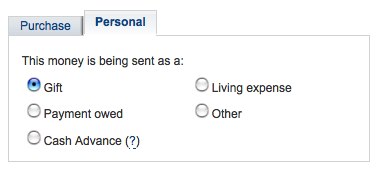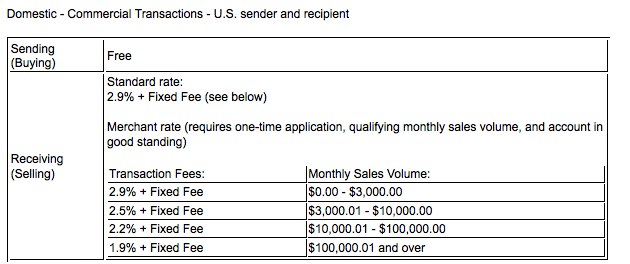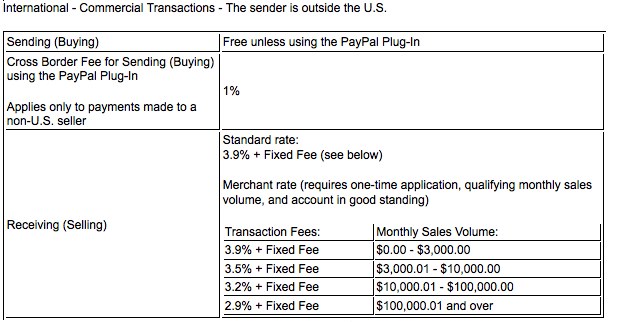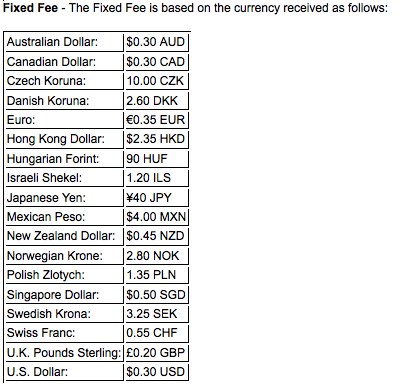
If you are used to getting payments sent to your Paypal account, you may have noticed in the past couple of weeks that you are suddenly being charged a fee even for Paypal-to-Paypal payments! In other words, where it used to be free to send and receive payments between Paypal accounts, suddenly (and seemingly without warning), Paypal users are getting hit with fees for inter-Paypal transfers!
It has to do with their new, amended Paypal terms of service. Effective on June 3, 2009, Paypal snuck in an amendment to their user agreement. That amendment says that any payment, for any transaction, will incur a fee to the recipient (the person being paid). This includes any payments you receive from using the “request money” function.
The only exception is for a Paypal to Paypal payment that is also earmarked as “personal” (for which you cannot use the “request money” function.”) They call this a “personal transfer”:
And make no mistake – if Paypal finds out that the payee received funds earmarked as “personal” when they were really for a service, as Paypal explains:
The Internet Patrol is completely free, and reader-supported. Your tips via CashApp, Venmo, or Paypal are appreciated! Receipts will come from ISIPP.
“If you are selling goods or services, you may not ask the buyer to send you a personal payment for the purchase. If you do so, PayPal may remove your ability to accept personal payments.”
Now, while this doesn’t say that a penalty may be incurred if the buyer voluntarily marks a payment as “personal” even if it’s not, one has to imagine that Paypal will come down on that like a ton of bricks as well.
In addition to the new Terms of Service, Paypal has rolled out a modified payment interface.
The new “services” payment interface:
The new “personal” payment interface:
The new, amended Paypal terms of service state, in full in the relevant part, that:
“Fees depend on whether you are making a commercial transaction or a personal transaction. A commercial transaction involves buying and selling goods or services, and payments received when you send a “request money” using PayPal. A personal transaction involves sending money to and receiving money from friends and family without making a purchase.
If you are selling goods or services, you may not ask the buyer to send you a personal payment for the purchase. If you do so, PayPal may remove your ability to accept personal payments.”
Paypal also goes on to say that “Fees depend on the payment source that the sender selects. The amount of the fee will be shown at the time the payment is sent. The Fee is paid by either the sender or the recipient. The sender decides who pays.”
That said, we have been unable to find the “sender decides who pays” option in Paypal. Despite testing numerous transactions, it has always been the recipient who has been charged the fee.
Under the new terms, the fee is 2.9% for anything up to $3000 (3.9% if you are outside the U.S.), and goes down a bit for higher amounts. On top of that they tack on a fixed fee (based on where you are located) and, if there is currency conversion involved, they charge an extra 2.5% on top of the exchange rate!
Fees for payments within the United States:
Fees for payments across international borders:
Fixed fee:
The currency conversion fee:
Legally speaking, by using Paypal after the new Terms of Service have been posted, you are accepting the new terms.
If, like many others, you feel that this is the last straw, you may be interested in our article, 3 Easy Alternatives to Paypal.
You can read the new Paypal Terms of Service here.
The Internet Patrol is completely free, and reader-supported. Your tips via CashApp, Venmo, or Paypal are appreciated! Receipts will come from ISIPP.















